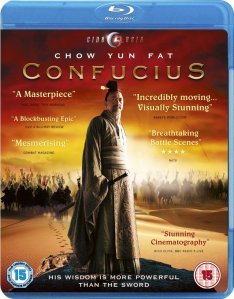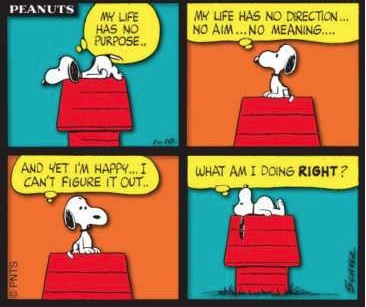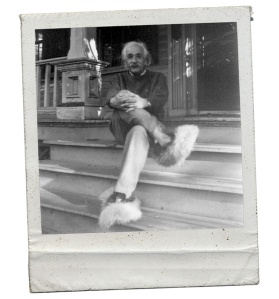
“Long you live and high you fly
Smiles you’ll give and tears you’ll cry
And all you touch and all you see
Is all your life will ever be” (Pink Floyd, “Breathe”, 1973)
Contrary to popular belief (and advertisers everywhere), people don’t need a product, service or lifestyle to enjoy life.
A moment of peace in a park or beside a drainage ditch with a Great Blue Heron can stop a busy brain from blocking beauty.
Without the blinders of identity and self-interest, a person can go from listening to an interior monologue capable of souring any perspective (and ruin your life), to enjoying the smallest things—a ladybug on a leaf, ducks quacking and water vapour (for no reason).

Breathing can be enjoyable. In the midst of a problem, you can enjoy breathing (assuming that it is safe to do so).
If you hold your breath long enough, your body breathes for you. Combine this breathed sensation with a heart beating autonomously and you can appreciate self-driving organic automation. 
But breathing and heart-beating (consciously or not) gets boring. After breathing (even if it is enjoyable), people get distracted and ask like Peggy Lee did, “Is that all there is?”
What’s easily enjoyed is easily ignored. We might want to enjoy more, but therein is our problem: What we enjoy triggers our brain’s “reward” centers and makes pleasure habit-forming (see also: “Hedonism, Selfishness and a Womb with a View”).
A pleasure repeated can “set up potentially harmful routines, such as overeating, smoking, drug or alcohol abuse, gambling and even compulsive use of computers and social media” (Breaking Bad Habits).
Enjoyment (and addictive drugs) prompts the brain to release dopamine—a chemical responsible for transmitting signals between nerve cells.
Dr. Russell Poldrack, a neurobiologist at the University of Texas comments, “If you do something over and over, and dopamine is there when you’re doing it, that strengthens the habit even more. When you’re not doing those things, dopamine creates the craving to do it again” (source).

Therefore, it isn’t prudent to do whatever thou wilt. One will soon find one’s self on auto-pilot, following a predetermined sequence of operations conditioned by habit prompted by pleasure.
One may soon find one’s self on a Hedonic Treadmill chasing a craving for happiness that becomes evermore unattainable.

“The hedonic treadmill, which is also referred to as hedonic adaptation, is a metaphor for your set point of happiness. The idea here is that no matter how good or bad something makes you feel, you will eventually return to your original emotional state” (developgoodhabits).

Cue music: “The Windmills of Your Mind“:
“Round like a circle in a spiral, like a wheel within a wheel
Never ending or beginning on an ever spinning reel
Like a snowball down a mountain, or a carnival balloon…
Like a tunnel that you follow to a tunnel of its own
Down a hollow to a cavern where the sun has never shone
Like a door that keeps revolving in a half forgotten dream
Or the ripples from a pebble someone tosses in a stream…”
“
Aristippus (435-356 BC) the philosopher saw danger in pleasure and advised, “It is not abstinence from pleasures that is best, but mastery over them without being worsted” (source).

The philosopher Epicurus (341-270 BC) agreed, but his idea of pleasure was ataraxy, “a state of serene calmness.”
Epicurus advised us not to be ambitious but to live in harmony with nature and strive for tranquility brought by contentment with simple things and the absence of pain.
 Existential Comics: Was Epicurus Really a Hedonist?
Existential Comics: Was Epicurus Really a Hedonist?
Our happiness formula is backwards. We think, “If I do something great, work overtime, get straight A’s, achieve some goal, then I’ll become more successful, and then I’ll be happier.”
But a few weeks after a goal is achieved, the trip over, the new treasure made familiar, happiness levels return to normal and a new goal is needed to achieve happiness later.

The trick to evading the trap of cravings and treadmills is to not wait until later to be happy. Save time and be happy first! To do that, it’s quite simple: Go without expectations, forget who you are and shift from thinking, “I must do something,” to, “I must do nothing.” The real trick is to enjoy reality as it is, because it is.

You are free to enjoy, but enjoying the world as it is, as you are, is difficult for people who are weighed down by time and things to be done.
Accepting reality without need, fear, or demand, with a sigh, without resistance, “this is what it is,” you suddenly find yourself relaxing into what there is (see also: “This too shall pass“).
 Let’s mash it. Let’s smash it. Let’s get creative! The meaning of life is in what you make it. Let’s juxtapose a few things. See what happens. Incongruecies can be funny. To smile, to laugh, per chance to enjoy.
Let’s mash it. Let’s smash it. Let’s get creative! The meaning of life is in what you make it. Let’s juxtapose a few things. See what happens. Incongruecies can be funny. To smile, to laugh, per chance to enjoy.











 Confucius said, “Everything has beauty, but not everyone sees it.” The same goes for humour.
Confucius said, “Everything has beauty, but not everyone sees it.” The same goes for humour. People come to the table with different ways of seeing the world and different personalities and capacities to make decisions. You could be rich and miserable, poor and miserable or in a miserable middle.
People come to the table with different ways of seeing the world and different personalities and capacities to make decisions. You could be rich and miserable, poor and miserable or in a miserable middle. Wit can be barbed and satire harsh, but humour expresses comfortable feelings without unpleasant effects on others. Humour can help you bear “what is too terrible to be borne” (
Wit can be barbed and satire harsh, but humour expresses comfortable feelings without unpleasant effects on others. Humour can help you bear “what is too terrible to be borne” (





 Why is purpose and meaning associated with happiness? The Dalai Lama (aka
Why is purpose and meaning associated with happiness? The Dalai Lama (aka 

